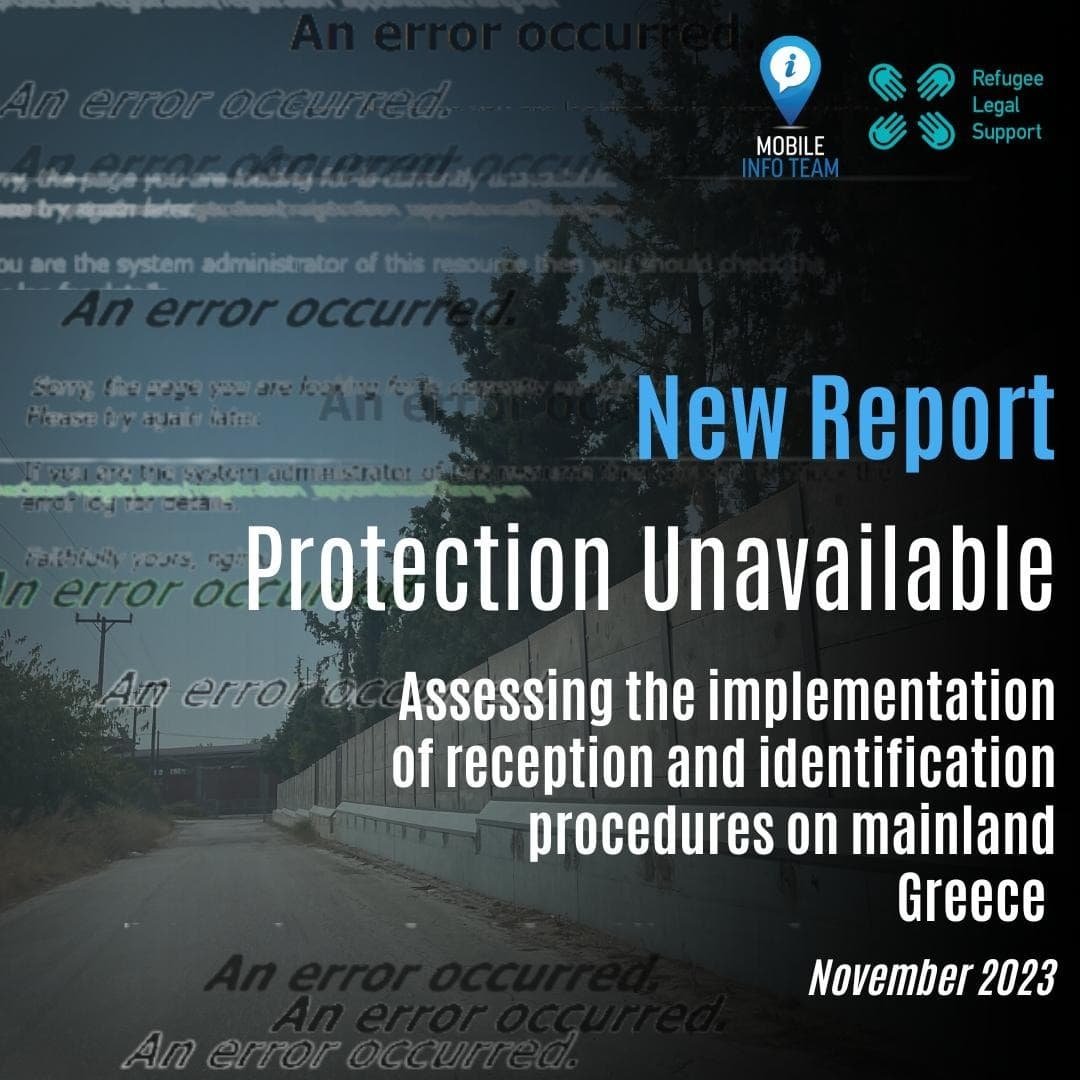16/11/2023, Athens
Claiming asylum is a basic right, yet in Greece people have long been subjected to destitution and left undocumented as they struggle to claim asylum. For over a year now, people can only register their claim if they endure de facto detention in an isolated Reception and Identification Centre.
Over the last year, accessing these centres on mainland Greece has proven to be fraught with “technical difficulties” as the online platform to book appointments told people there were “no dates available” or simply displayed an error message. People trying to access the the Reception and Identification Centres were even arrested, as were those waiting months for their appointments without access to their basic rights.
The online platform is now functioning but the insecurity and harm inflicted by this dysfunctional system persists. With no possibility to indicate vulnerability before entering a Reception and Identification Centre and time limits enshrined in both EU and domestic legislation systematically flouted, we join people claiming asylum and legal practitioners alike in calling for change.
– Lucy Alper, Athens Legal Clinic Coordinator, RLS
New research from Mobile Info Team and RLS examines the impacts of policy changes in 2021 and 2022 which led to a new system for applying for asylum in mainland Greece, Crete and Rhodes, introduced in September 2022.
Under the new procedure for applying for international protection, applicants who cannot prove their identity with a document issued by a Greek public authority must undergo reception and identification procedures within one of two screening facilities on the Greek mainland, located close to Athens and Thessaloniki. The screening procedure is mandatory for most people wishing to apply for asylum in Greece, and involves a police interview, medical check, vulnerability assessment and the registration of the asylum claim. During this procedure applicants’ movement is restricted to the screening facility, for an initial period of five days which may be extended up to 25 days.
Mobile Info Team and Refugee Legal Support argue that, 14 months after the establishment of two Reception and Identification Centres for screening and registration of asylum claims on the Greek mainland, access to asylum continues to be highly restricted. After years of mismanagement, structural deficiencies in the Greek asylum system remain, limiting access to international protection and placing people at risk of destitution and detention.
The report documents the experiences of 19 people who applied for asylum after the establishment of the mainland Reception and Identification Centres in September 2022. Based on analysis of these testimonies we argue that:
- The new system for registering asylum claims on mainland Greece imposes blanket 25-day de facto detention measures on asylum seekers, which limits their ability to access legal support and information to help them understand their rights
- The new system does not ensure effective access to international protection within the time frames laid out in Greek and EU law, leaving applicants without access to basic services including healthcare, and vulnerable to arbitrary arrest, detention and possible removal from Greece
- Vulnerable persons are not effectively identified in the new system and the screening process does not ensure that applicants have access to adequate medical and psychosocial support




